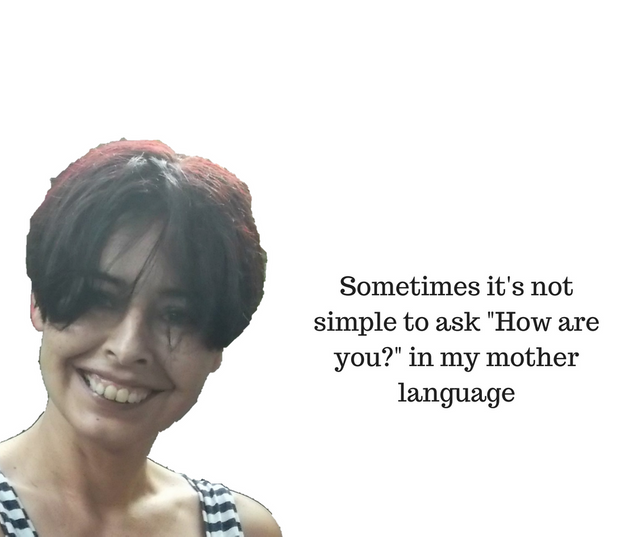A curiosity about my mother language: forms of courtesy ^_^
Yesterday I was talking with my hubby about some differences from English language and Italian language, we were focused on the form of courtesy we use in our mother language and I thought it will be interesting for you to know them, because it's really a curiosity when we translate them in English ^_^
You have to know that (especially in the old time) when we meet a person that we don't know or someone older than us, we have 3 alternatives to ask the "How are you?":
1- Come stai? - it's the common "how are you?", where the "you" is the second person singular. We use this form when we meet a friend or someone younger than us. It's an informal form ^_^
2- Come state voi? - it's the "How are you" where "you" is the second person plural. It was often used during the old time and not just for people we meet for the first time, but also for parents. For example, my mother used this form of courtesy also with her mom until my grand mother died in the 1990. Now, this is a form that just few old people use.
3- Come sta lei? - So, this form of courtesy may seem really strange in English, because the translation is "How is she?", but it referred also to a man, not just to woman! This form is the most used form of courtesy in Italy.

You may ask: Why you use the "she" also for men?". I have to explain.
Jumping in the past, until the 1300 in Italy people used 2 forms: tu and voi ("you" in the second person singular and plural, it reminds the old "thou and you"). Around the 1400 people started to use the lei ("she", the female third person singular) like a form of courtesy and respect. Maybe it came from the use of the spanish "usted" or because here in Italy many therms of great respect referred to aristocratic people was in female form, for example "Sua Signoria", but until the 1900 the use of the voi and the lei was the same. In the 1938, the fascist dictatorship forbade the use of lei like a form of courtesy and so, maybe because it was one of the many impositions of that bloody times, when fascism fallen down, people started to use the lei more than before ^_^
So, if you'll come in Italy and someone ask you "Come sta lei?" (How is she?), don't worry, it's just a form of ourtesy even you are a man ^_^
See ya later and steem on!
Silvia

Did not know that... in portugal we use "voce" when we want to be more respectful, it works both for female and male... but it's really strange, in some parts of the country "voce" is used to show respect while in others it's the opposite, it also changes meaning depending on the situation... I just ended up not using it at all and just treat people with "senhor" or "Senhora" before the main name, it shows respect too... "senhor" is your signore
Our "lei" is used often here in Tuscany, because in the ancient time we used femal title for aristocratic people (men and woman), I think in other regions of Italy is often use the "voi" (like your "voce", that sound very similar ^^). This is just when we meet us in person, but writing a letter we use Signore/Signora ^^ Portuguese and italian are very similar :D
Yes they are! And i love the italian language! Especially angry italians :P You guys sound awesome and funny when you are angry! I need to get myself an Italian woman, at lest then if she ever got mad and angry at me i would end up laughing because of it
It's important for life.
Good to know that 😊
Dutch also has two forms for saying "you", one familiar, one more formal and respectful. So do German and French. Must be a tricky thing for English speakers who learn another language. It doesn't always sit well with German or French people you don't know when you address them with the familiar form.
Hello @silviabeneforti, thank you for sharing this creative work! We just stopped by to say that you've been upvoted by the @creativecrypto magazine. The Creative Crypto is all about art on the blockchain and learning from creatives like you. Looking forward to crossing paths again soon. Steem on!
English is the more simple with only the "you" form indeed ;-) In french we also have the TU and VOUS that is related to one person or two or more, but is also a polite form to say VOUS when you don't know well a person ..french is a bit complicated ;-)